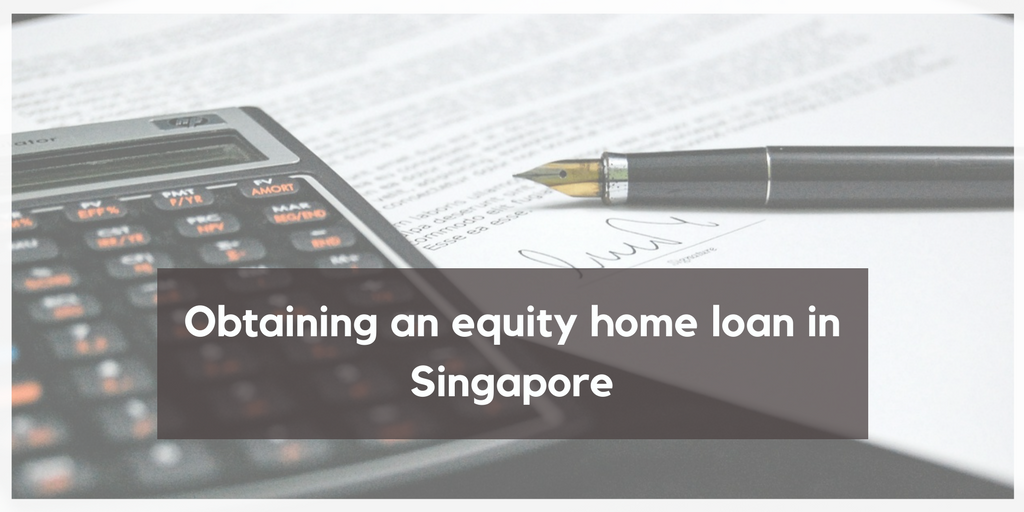Many homeowners consider using an equity home loan in Singapore as a debt consolidation loan to pay off their existing car, education and personal loans. Some use the cash proceeds for further investments. Should you consider taking one? What’s the pros and cons? How do you proceed to apply for an equity loan?
What is Equity Home Loan?
As a property value rises and the loan amounts gets smaller, the difference between these 2 values is known as the “equity” of the property. You can borrow on this equity, hence known as equity home loan. Equity loans are available for Private and Commercial properties. HDB flats are not acceptable collateral for equity loans.
Let’s look at how equity home loan is computed:
Property purchased in 2010 for $700,000.
Loan was 80% = $560,000 amortized over 30 years.
In 2017, a new valuation was done and the property is worth $1,2000,000 ($1.2 million).
The current loan amount is $470,000.
If this property loan is the only one you have in Singapore, then you may qualify for 80% lending on valuation, which is $960,000. Even if you have multiple housing loans, we know how to obtain up to 80% too!
Equity home loan amount = (80% * valuation) less current loan amount less CPF usage including accrued interest.
Assuming you have used $150,000 CPF with accured interest, then the equity amount would be about $340,000. This is the potential additional funds you can cash out, on this property. Together with the outstanding loan, the total debt would be $810,000.
What should you consider?
Cashing out is a popular move among homeowners with an investment mindset. However it is important that you do a complete analysis to understand why you should do it and what are the areas to look out for
Purpose – ask yourself why you need the money. Can the next investment provide better returns than the interest rates? Or is this a better option to generate funds for your business working capital?
Repayment – equity home loans are amortized in the same way as traditional mortgages. With relatively low interest rates, monthly repayments are low. In the above example, monthly for the equity loan is about $1,000 at 1.5% over 25 years.
Using cash – you are allowed to use cash to repay. CPF usage is not allowed. You can continue to use cash for the home loan portion.
Tenure – it’s possible to borrow up to age 70 to 75 according to current TDSR guidelines.
Single bank – both home loan and the new equity loan would be secured on the property with a single bank. You would be refinancing the current loan and apply for the new cash out.
Interest rates – the good news is equity loan enjoy the same rates as home loans.
% of lending – how many % can you borrow? The % is known as Loan-To-Valuation (LTV). 80% is possible if you currently only have 1 housing loan. If you have 2 or more housing loans, and are applying for a term loan, then the maximum LTV is 80% of valuation less current loan amount less CPF usage including accrued interest, or 60% of valuation less current loan amount, whichever is lower.
Caution
Make sure you can afford the monthly installments. There is no point in taking a loan that you cannot repay or a more expensive loan than you need.
If you are getting this loan to replace an existing loan, find out first if there’s any penalty in doing so.
Repayment is via cash only. Can you afford the cashflow?
How we can help?
We certainly think we can assist in this journey. We have helped many property owners in achieving their investment dreams. Talk to us if you seek an independent mortgage consultant to do the following:
- Obtain valuations from all banks and review their policies on cashing out
- Compute the maximum possible equity loan amounts
- Prepare a comprehensive report of repayment, costs, penalties and interest rates from every bank
- Apply for the desired outcome
We might be able to unlock your equity to achieve your investment goals. On top of that we can help you to compare Singapore home loans and find you the best rate.
Contact us today for the best mortgage advice!





